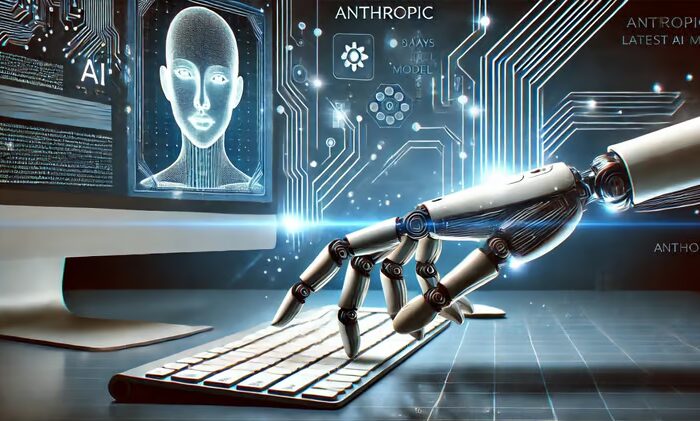

The global AI market is expected to surpass $190 billion by 2025, with autonomous agents playing a key role in driving this growth.
Companies like OpenAI, SAP and Microsoft have already invested billions in AI-driven agentic applications, setting the stage for a new era of automation and operational efficiency.
With AI agents now capable of handling complex tasks such as data analysis, customer interaction, and real-time decision-making, industries ranging from healthcare to finance are beginning to realize their full potential.
This article will explore:
- The evolution of AI agents and their growing autonomy
- Key milestones in the development of agentic applications
- Challenges facing AI agent adoption
- Real-world applications of AI agents across multiple sectors
Let’s dive in:
Why AI Agents and Modular Models Are the Future of Business Operations
As global markets expand and supply chains become more intricate, businesses face increasing challenges in maintaining efficiency, transparency, and adaptability. Traditional systems, built on rigid, monolithic structures, are struggling to keep pace with the complexities of modern business ecosystems. This is where AI agents and modular AI foundation models step in, offering dynamic, scalable solutions that not only meet today’s demands but also anticipate tomorrow’s challenges.
Modular AI foundation models provide a flexible architecture by allowing businesses to reconfigure AI components as needed. These models help companies adjust to new regulations, market trends, and operational shifts without having to rebuild entire systems. Meanwhile, AI agents introduce autonomy—learning continuously, making data-driven decisions, and proactively optimizing processes. Together, these innovations are revolutionizing how businesses manage operations, supply chains, and collaborations.
The Impact of Modular AI Foundation Models on Business Efficiency
Modular foundation models represent a breakthrough in adaptability. Unlike traditional, all-in-one systems, modular AI allows businesses to create and customize AI solutions by using smaller, independent components—or modules—that can be added, swapped, or refined post-deployment. This setup gives businesses the power to adapt quickly to new demands without overhauling entire systems.
Key Advantages of Modular AI:
- Flexibility: Modules are purpose-built for specific tasks, such as compliance, logistics, or customer relations. This means businesses only activate the necessary modules for each task, optimizing resource usage and reducing costs.
- Scalability: As businesses grow or pivot, new modules can be added seamlessly. This prevents disruption to existing workflows, making modular AI highly scalable.
- Reusability: Modular components can be deployed across different departments or even shared with external partners, ensuring cohesion and consistency.
- Transparency: The modular structure provides businesses with better traceability, which is crucial for supply chain monitoring, ensuring regulatory compliance, and auditing.
By adopting a modular AI approach, companies can streamline operations, reduce waste, and enhance their ability to respond to market changes. This adaptability is key to maintaining competitive advantage in fast-paced industries.
Example of Modular AI Use:
A global logistics company facing fluctuating compliance requirements across regions can simply activate a compliance module for each country’s regulations. As new regulations are introduced, only that module needs updating, not the entire system. This allows the company to stay compliant without the risk of operational downtime.
AI Agents: Autonomous Systems Shaping Business Ecosystems
AI agents take the concept of efficiency to the next level. These autonomous systems can independently perform tasks, make real-time decisions, and continuously improve through learning. In business ecosystems, this means less reliance on human oversight for routine processes and the ability to automate complex tasks, from supply chain management to market analysis.
Roles of AI Agents:
- Supply Chain Optimization: AI agents monitor every step of the supply chain, identifying inefficiencies and bottlenecks while offering actionable recommendations to improve workflows.
- Risk Management: By analyzing data in real-time, AI agents can proactively detect potential risks, allowing businesses to mitigate disruptions before they escalate.
- Collaborative Enhancements: Through automated data sharing and communication, AI agents help businesses collaborate more effectively with partners, ensuring that everyone in the ecosystem is aligned and informed.
Case Study: Pioneering the Future of Generative AI: How Joule’s Collaborative AI Agents Are Revolutionizing Work
Generative AI has already begun to streamline tasks such as customer service automation and the creation of detailed reports. However, its true potential lies not just in boosting individual productivity but in enabling teams to collaborate and solve complex challenges. This shift towards cross-functional cooperation is what will drive the next wave of business automation and innovation.
At SAP TechEd 2024, SAP showcased its expanded AI strategy, introducing a more collaborative approach to business transformation with Joule, its AI copilot. Joule’s autonomous AI agents are designed to work seamlessly across business functions, helping organizations enhance collaboration and break down operational silos.
Unlocking New Value Through Collaboration
What differentiates Joule from typical AI systems is its ability to foster teamwork across various business areas like finance, supply chain, and human resources. Joule’s agents do not work in isolation; they collaborate, providing organizations with the capability to address multifaceted challenges in ways that single-use AI tools cannot.
These agents are equipped to reason, plan, and act collectively. For instance, when resolving a payment issue, multiple agents—such as an email agent, a finance agent, and a reporting agent—coordinate their efforts. This eliminates manual intervention by automating the entire process, allowing employees to focus on strategic goals.
Revolutionizing Business Processes
Built on SAP’s deep expertise in business operations and data, Joule enables businesses to achieve outcomes that go beyond simple task automation. The introduction of SAP Knowledge Graph will further empower Joule’s agents by linking relevant business data, helping them make more informed decisions and complete tasks with greater efficiency.
While many AI solutions on the market are designed for specific tasks, Joule is focused on driving company-wide efficiencies by supporting end-to-end workflows. As more AI agents are rolled out in late 2024 and into 2025, businesses will also have the option to develop custom agents using the Joule Studio platform.
By embracing Joule’s collaborative AI agents, companies are preparing for a future where AI is an integral part of everyday business operations, improving decision-making, increasing efficiency, and fostering cross-team collaboration.
The Synergy Between AI Agents and Modular Models
While both technologies are powerful on their own, combining AI agents with modular AI models brings even greater efficiency and adaptability. AI agents leverage the modular architecture to dynamically activate or deactivate specific components as needed, ensuring optimal performance across a wide range of business functions.
How the Synergy Works:
- Real-Time Adaptation: AI agents can instantly activate relevant modules to address specific tasks, such as order fulfillment or regional compliance. This dynamic system adjusts on-the-fly based on real-time data, enabling faster decision-making.
- Enhanced Collaboration: AI agents use modular components to streamline information sharing across business networks, improving collaboration with external partners and stakeholders.
- Continuous Improvement: As AI agents gather data, they refine the modules, improving performance in areas like demand forecasting and risk management.
- Scalability and Agility: The modular system allows businesses to expand or modify their operations without having to overhaul existing processes, making it easier to scale in response to market conditions.
Example of Synergy in Action:
A retail company preparing for holiday sales can use AI agents to activate sales prediction modules, optimizing stock levels in real-time while compliance modules ensure all transactions meet regional standards. This reduces overstock, eliminates inefficiencies, and ensures legal compliance—all without manual input.
Real-World Applications of AI Agents and Modular Models
Supply Chain Management and Traceability:
In industries like food production and pharmaceuticals, where traceability is paramount, AI agents paired with modular compliance models ensure transparency across the supply chain. From raw material sourcing to final delivery, businesses can monitor the movement of goods, ensuring authenticity and adherence to regulations.
Partner Collaboration and Integration:
AI agents can simplify the integration of new business partners by using specific modules that handle data exchange, compliance, and risk management. This makes it easier for companies to collaborate on shared platforms, ensuring smooth operations and reducing friction.
Customer Experience:
Personalization is key to customer retention, and AI systems can tap into customer data modules to offer personalized recommendations, boosting satisfaction and loyalty. By continuously analyzing customer feedback, AI agents can dynamically adjust product offerings and services to meet changing preferences.
Why Businesses Must Embrace AI Now
AI agents and modular AI foundation models are not just technological advancements—they represent a shift in how businesses operate and scale. These systems offer businesses the agility, transparency, and autonomy needed to thrive in today’s complex ecosystems. Companies that adopt these solutions will find themselves more adaptable to market shifts, regulatory changes, and the growing demand for transparency across supply chains.

The fusion of AI agents and modular foundation models is transforming how businesses operate. As these technologies continue to evolve, they will redefine what it means to be efficient, adaptable, and responsive to market needs. Businesses that invest in AI-driven systems today are setting themselves up for a future where innovation and agility are the cornerstones of success.
Subscribe To Get Update Latest Blog Post









Leave Your Comment: